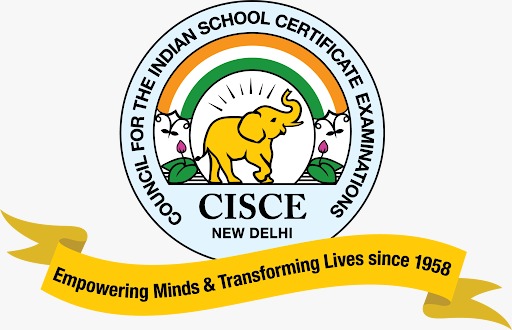What is the Updated Syllabus for Physics Class 12?
Physics is a fundamental subject in the Class 12 curriculum, essential for students pursuing careers in science and engineering. Understanding the updated syllabus is crucial for effective preparation and academic success. This guide provides a comprehensive overview of the CBSE Class 12 Physics syllabus, including core topics, practical experiments, recent updates, and preparation strategies.
Introduction
Importance of Understanding the Updated Physics Syllabus
Keeping up-to-date with the Physics syllabus is vital for students aiming to excel in their board exams. The syllabus outlines key concepts and learning objectives, ensuring that students are well-prepared for their exams and future studies.
Overview of Changes and Revisions
The CBSE has made several revisions to the Class 12 Physics syllabus to align with the latest educational standards and to enhance learning outcomes. These changes reflect a greater emphasis on conceptual understanding and practical application of physics principles.
Core Topics in the Physics Class 12 Syllabus
Mechanics
Mechanics deals with the motion of objects and the forces acting on them. Key topics include kinematics, dynamics, work, energy, and power. Understanding mechanics is fundamental for solving problems related to the movement and interaction of physical bodies.
Electromagnetism
Electromagnetism explores the interaction between electric currents and magnetic fields. Core concepts include electrostatics, current electricity, and magnetism. This section is crucial for understanding how electrical and magnetic phenomena work in practical applications.
Modern Physics
Modern Physics covers the advancements in physics that emerged in the 20th century. Topics include quantum mechanics, atomic structure, and nuclear physics. This area helps students grasp the principles that govern the behavior of matter at atomic and subatomic levels.
Optics and Waves
Optics and Waves involve the study of light and sound. Important topics include wave optics, interference, diffraction, and polarization of light. This section provides insights into the behavior of waves and their applications in various technologies.
Practical Experiments and Assessments
Overview of Practical Experiments
The practical component of the Physics syllabus involves hands-on experiments designed to reinforce theoretical concepts. Experiments typically cover areas such as mechanics, optics, and electromagnetism, allowing students to apply their knowledge in a controlled environment.
Evaluation Criteria and Marks Distribution
Practical assessments are an integral part of the syllabus and contribute significantly to the final grade. Evaluation criteria include the accuracy of observations, the ability to follow experimental procedures, and the presentation of findings. Marks are distributed based on these factors, highlighting the importance of practical skills.
Recent Updates and Changes in CBSE Syllabus
Overview of CBSE Guidelines
The CBSE has recently updated the Class 12 Physics syllabus to reflect new guidelines that focus on enhancing conceptual clarity and practical skills. These updates include revised topics and a more streamlined approach to covering essential concepts.
Impact of Recent Revisions on Classroom Teaching
The recent revisions aim to improve the teaching and learning experience by focusing on core principles and reducing redundant material. Teachers are encouraged to use innovative teaching methods and resources to help students grasp complex concepts more effectively.
Preparation Strategies for Class 12 Physics
Effective Study Techniques
To prepare effectively for the Class 12 Physics exams, students should adopt a systematic study approach. This includes regularly reviewing core topics, solving previous years’ question papers, and participating in study groups. Understanding key concepts thoroughly is crucial for exam success.
Time Management Tips for Board Exams
Effective time management is essential for balancing study and revision. Creating a study schedule that allocates time for each subject, along with regular breaks, can help manage stress and improve productivity. Prioritizing difficult topics and focusing on problem areas can also enhance preparation.
Resources for Self-Study and Revision
Numerous resources are available for self-study, including textbooks, online tutorials, and practice tests. Utilizing these resources can provide additional practice and reinforce understanding of complex topics. Websites like BYJU’S and Leverage Edu offer valuable insights and study materials.
Conclusion
Importance of Staying Updated with the Physics Syllabus
Staying informed about the updated Physics syllabus is crucial for effective exam preparation. Regularly reviewing syllabus changes and focusing on core topics can significantly impact academic performance.
Encouragement for Effective Preparation and Success
With a clear understanding of the syllabus and effective preparation strategies, students can approach their Physics exams with confidence. Consistent study and practice will pave the way for success and mastery of the subject.
FAQs (Frequently Asked Questions)
The core topics include Mechanics, Electromagnetism, Modern Physics, and Optics and Waves.
Practical experiments provide hands-on experience and reinforce theoretical concepts, helping students understand and apply Physics principles effectively.
Recent updates include revisions to align with new guidelines, focusing on core principles and improving conceptual clarity and practical skills.
Effective preparation involves regular study, solving past papers, time management, and using additional resources for self-study and revision.
Additional resources can be found on educational websites like BYJU’S and Leverage Edu, which offer study materials, tutorials, and practice tests.







